The Wars of Hate
This article is written meta-textually. It was too difficult for me to write this piece in the usual in-world character point of view. These wars were more than mere conflicts: they represent a drying up of a horizon of meaning. My characters can't write about it in their current era without there being extreme confusion created for the (real-life) reader, because they would write about the Wars from a limited historical view while ostensibly appearing objective. There are two sections: the Philosophical and the Epic. The former is dense and dry, but meaningful. The second is a more historical narrative. Skip to what you're interested in.
The arrows clanged at his back as the god quaked with rage,
the god himself on the march and down he came like night.
The Double Triumverate Wars, also known as The Wars of Hate, The Duel Between the Brothers, or The Age of the Beginning of the End of the Anthropomorphic Gods, was the last and ultimate conflict of the Elvish ages. Calamitous battling rocked the world and overthrew its continents. Gods reeking of blood descended from the sky, embodied, and committed themselves to ruinous battle. Elvish armies mobilized in numbers unending, numberless as the stars in the sky and the sand on the seashore; and when those armies were cut down still more were raised. Its ending culminated in the Great Flood, which marks the beginning of the world's current historical era.
The Philosophical Explanation
So lone the hills;
there is no one in sight there.
But whence the echo of voices I hear?
The rays of sunset pierce the slanting forest,
And in their reflection, green mosses appear.
There are no records that survive from the times before the Wars; only documents that were written afterwards survive, dictated orally by persons who had survived that dreadful conflict. But while the information is usually personal on a heartfelt level, dictating horrific events in minute details, the information is often contradictory. Because of the keen memory given to most Elvenfolk, many are doubtful that the poor quality records are due to the degradation of transmission that is common to Humanity. Conspiracies arise like weeds in an attempt to explain the failure of the usually lore-loving Elves to record the events that happened.
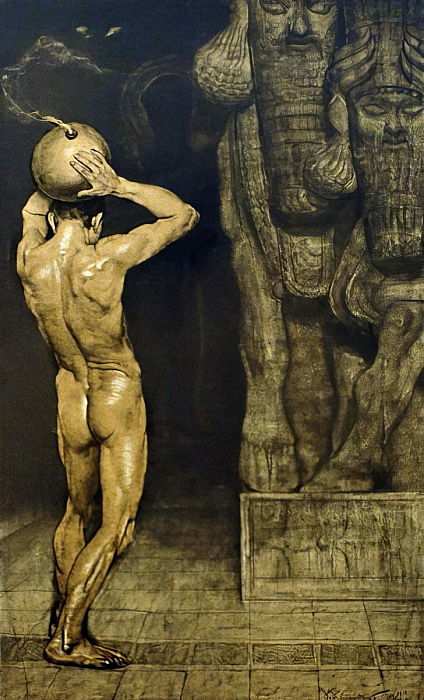
The Wars of Hate can never be pinned down into a series of events that happen over time because they were the last 'pure' Elvish exercise, before finally collapsing into the Human purview and, therefore, history. Elves do not exist in Time; there is only an Elvish history from the Human vantage. This is because Elves do not have a perceptive gulf between their individual personalities and 'naked reality'. You can say that they are reality in a way more intimate than any Human spiritual experience can express. But they are not the 'Universe' or 'Time' experiencing itself; they do not have that reflexive ability: they are not subjects. The Elves maintain a paradox. They are at once individuals and yet incapable of the categorizing powers common to Humans—the categorizing power that also alienates. A Human sits under a tree and enjoys its shade: the tree is considered then as an instrument, as an object, a means to the ends, the shade. An Elf may consider the tree in and of itself because the tree is as the Elf. You can say that there is no difference between them.
As a consequence, the Elf can be described as a purely positive character. But their greatest paradox is that they lack the ability to negate. They cannot alienate the tree into a tool for their use. So what is a purely positive entity (the Elf through their perfect unity with the World) is revealed to be defined by a negative: a lack of ability to negate. This is their weakness, and is why the Elven community ultimately collapses because of the onset of Humanity. Humanity, finding the Elf, relates to them and mirrors upon them. Humanity sees itself in the Elf and reflects the Elf back to the Elf. Being mirrored upon, the Elf is confronted with a reduced mirror of itself. For Humanity, being a locus of negativity, has seized upon the Elf and reduced it through this negative power. Furthermore, in Humanity the Elf finds its concrete negative. The Elf, who had never before interfaced with 'things' or 'objects', has now found itself reduced to a thing and an object by its appearance in Humanity.
This reduction and alienation, expressed through the function of Time, must eventually lead to the total reduction of the Elf into a nil entity. Eventually, the Elves will no longer exist. And yet, because the Elf itself does not reside in time, this reduction of the Elf is only an apparent atomization. With the last reduction of the Elf to a nil, Humanity will then be interfacing with that paradoxical part of an Elf, the last thing that remains as it is its final definition: the lack of a negating power. It is at this meeting point, the negative definition of the Elf meeting the negative powers of Humanity, that the final reification of the Elf will be found. At last, there will be a final union in love, a collapse of Nothing and Being, so that Elf and Man fall into a unified Becoming.
This final union is a long way coming in the historical process. In a way, the Elf has already reached the end, being outside of Time. This is why Humanity in the current era looks up to the Elves so much in all venues of society despite being the active deniers of the full Elf. It is an echo of that last union, ringing backwards through Time. The Master takes up the role of the Slave in a play-act, in preparation for that last wedding in which the roles sublate into each other, losing none of their meaning, yet becoming so much more so that their previous definitions become meaningless.
More details on the nature of the Elves can be found in the article on the Elves and in the article on Faery.
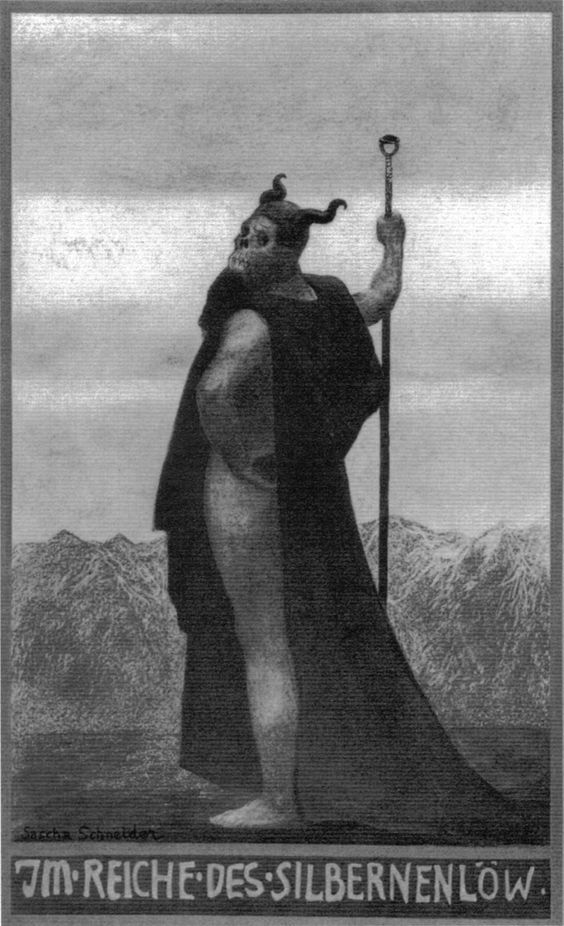
Lastly, Humanity has a similar paradox in its negative nature. This long-going and destructive nature is conceptualized under two different names: one social and one individual. The social is called Rationalisation, which itself draws power from the individual negative form: Death. Death is the end of all Humans. It is their facing towards Death that allows their negative powers. But the search for the indestructible Being is the ultimate quest for many Humans, and has been postulated to be many things: the eternal Heaven, the existential quality, immortal life, ontological understanding, etc. Rationalism's power being negation, it quickly reduces individuals to objects for other individuals' pleasures. This reduction at the individual is not stopped there. The reduction continues until the individual is itself shattered into many atomized parts, becoming schizophrenic. The Rational power is at conflict with Death because Rationalism takes its validity as self-evident—contradictory to its nature to eternally divide concepts, it takes this first assumption. Finding its neighbor in Death, repugnant due to its finality yet all too close, it will increasingly cut downwards through concepts until it can reach that final positive kernel of Being which cannot be cut; this is a circling back to an image of its original self-evidency, an attempt to find a justification for its self-evident foundation in opposition to Death. This is the source of the many quests for Humans to search for Being. It ultimately collapses because the Rational faculty is destroyed with the death of its user. The Rational faculty ends in the irrationality of its first assumption.
The Gods
But Jesus answered and said, “Ye know not what ye ask. Are ye able to drink of the cup that I shall drink of, and to be baptized with the baptism that I am baptized with?”
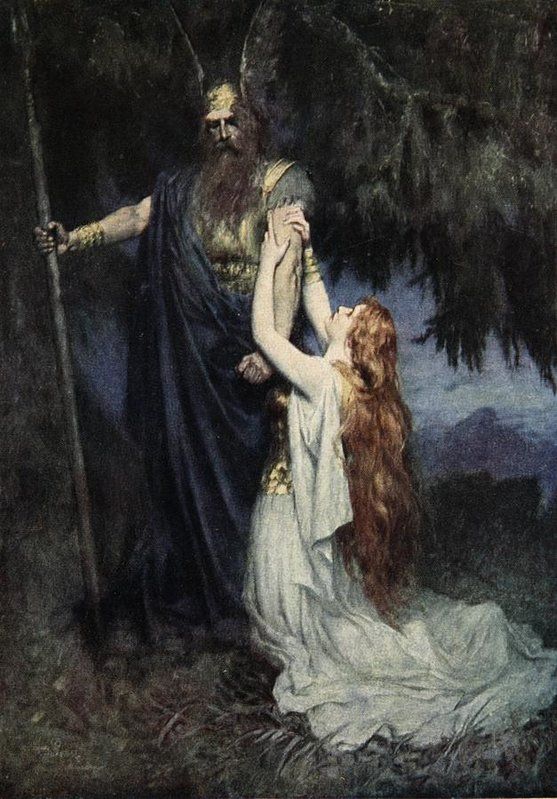
The gods are the natural world (the world sans Humanity). This means that their substance is the exact same as the Elves.
The relationship of the gods to the Elves is only distinguishable by their relation to each other. The gods conceive of themselves perfectly but not to the greatest perfection. This conception is called the Elves. Neither are before the other. Then, in mutual love for each other, perfectly but not to the greatest perfection, the Elves and gods are held between each other. Proceeding from this love is Faery: neither the gods, Elves, or Faery were before each other. They are all the same being, though different persons. The gods are the generative power, the Elves the thoughtful power, and Faery the vital power. Together they are called the World.
Humanity's relation to the World has already been described. Humanity seizes upon the world and views it in parcels called moments in Time. Their relation to the World will eventually dissolve the World. But it has been stated that the Elves are defined by their negative definition. In this way, Man is precisely an original part of the World. Their final union can be found in their explosive beginning.
As for the process itself, Humanity's dissolving of the Triperson alienates the Triperson within itself. The Triperson is an expression of pure positivity. Its delineation under Humanity transforms the mutual love of the gods and Elves into that one of estrangement. This is the heart as to why Faery is corrupted and will vanish. As Time goes on and the World is increasingly forced within its confines, the World will increasingly reach its negative definition, its voluminous base stretching upwards like the bitter point of a needle. The Elves and the gods grow at odds with each other. The thought of the World and its generative powers are no longer identified with each other, and their love is lost. Hence why much of the lore in this world will confirm that the Elves had a conflict with the gods. What isn't said is that this conflict was not an occurrence in Time, but rather the World as Humanity found it. Humanity found the World to be immediately at variance with itself because that is the only possible conception that Humanity could press upon the World at their first experience with the World—the first meeting of Nothing and Being. And so it was with the World so it was reflected upon Humanity, who have been constantly beset by antinomies.
Indeed, you can see that much of Humanity can be found in the relationship of the Elves and gods. The thoughtful powers of man are at variance with its generative, often flying ahead of what may be made, or its generative powers overwhelming the possibilities of imagination, such as with the magnificent bloodiness of birth. As said before, Man is an original part of the world through the negative definition of the purely positive Elves.
As a consequence of this diminution through Time, the Gods appear in different historical forms. Each represents Humanity's relationship with history as a whole and increasingly will become atheistic. The first is the Mythic, which are never recorded in historical records and must be both eternally applicable to many real situations yet remain impossible historically. The Mythic Gods do not have actual forms and only exist as archetypes, to be pulled from the aether as required by the immediate situation.
The second is the Anthropological, which is the gods taking on Human form and acting like Humans. Here Humanity finds itself being reflected back wherever it looks, the rocks, the sky, the sea. This is the era of the Elvish Empires who conquer and subjugate many slaves.
Then is the Formal, which is the beginning of philosophical interpretations of the gods. Here the gods are merged into the natural spheres over which they had domains. Thor is the Thunder, to take a real-life example. We will find the names of the gods becoming the same as the natural phenomena. Also, the religious and philosophical spheres will become separated. The Elves begin to wane as Human empires take their place. The most famous of these is the Empire of Nelqora. Men begin to differentiate themselves from Elves through language (e.g. what was once all 'Humanity' is now split between Elves and Humans proper).
Next is the Monistic, which is the reunion of the philosophic and religious spheres. Gods that numbered in the many will be collapsed into the one, whether it is a pantheistic substance or a single person. This will also mark the rise of monotheistic religions. The rationale required to remove all other gods sets the foundation for the further removal of the One God, and so Atheism becomes a real possibility acceptable on a mass scale, whereas before it could not be achieved without being an anomaly. The Gods or God appear in visions and dreams in this mode, but it becomes easy to dismiss these visions from individuals being crazy. The last leaves of the Elves curl in their final decadence. Their ancient homes remain as wondrous palaces of unsatisfied desires.
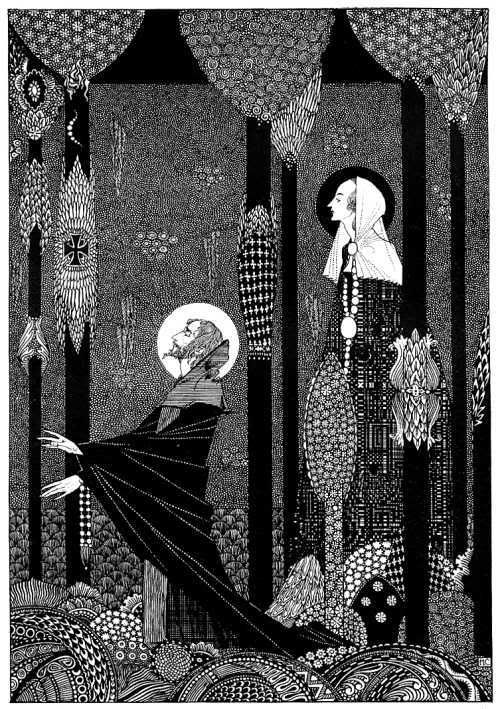
The final stage is that of the Atheist God, the God who cannot tell where they are. At this point, the Elves will have entirely disappeared and be disbelieved. All relics of their civilization can no longer be found or will have only but the echo of their original properties and be attributed to ancient Humanity. The sacred is totally unrooted and turned profane under Rationalism, which attempts to universalize the sacred. But if Humanity is not totally dissolved under their own negativity, if it is possible to find that kernel of Being or to find the potentiality in Nothing, then the unrooted sacred will become unlimited in scope, the universal profane revealed to be sacred—an impossibility in the past, for the sacred was defined as that 'set apart'. The gods cannot say where they are because there is no place they are not in. The last revelation of the World is at hand, then, but my imagination cannot stretch beyond that horizon, and I leave this history unfinished.
A final note on the gods: there are probably a few sentences in other articles that state the "gods know not where Men go after they die", or something like that. The truth of this is found in that Man is propelled along time to the fullness of their maturity. As Time grows increasingly long, so then the gods, whose activity remain at the beginning of Human Time, must see Humanity grow increasingly further away. Of course, their final union has been proposed above. But that is the end of all stories, and I am not good enough to tell it.
Consequence of the Philosophical
Pure being and pure nothing are therefore the same. The truth is neither being nor nothing, but rather that being has passed over into nothing and nothing into being—“has passed over,” not passes over. But the truth is just as much that they are not without distinction; it is rather that they are not the same, that they are absolutely distinct yet equally unseparated and inseparable, and that each immediately vanishes in its opposite.
The Wars of Hate were the final "pure" Elvish exercise. It also marked the entrance of Humanity, and therefore the beginning of the Elvish dissolution. This means that the Wars of Hate happened at the beginning of the Anthropological period of the gods.
Because of Man's entrance, the estrangement of the gods and Elves was already realised. This estrangement was violent upon both parties and fragmented them within themselves, realizing their alienation within themselves. This alienation then leads to the further schizophrenia of the gods and Elves, hence why there is a war between them, who are Othered within, and a battle of Evil and Good ensues. In the Wars are realized the truth that "in fighting Evil, the good God is fighting himself."
Their confrontation with the negativity that defines themselves leads to the tension that ends with an explosive war. The falling of positivity as it disappears into the dissolution of the negative leads us into the farthest banks of thought. How can this tension be resolved, and the Wars ended? So then the gods and Elves are attacking themselves; what this means is that they have suffered, for they have endured privation. In suffering the tension is resolved. Man looks upon the Elves and gods with a cool sneer, "What are you, demi-god and god, who have never had to work a day in your life?" But now the Elves and gods can reply, "We too have suffered, and in ways you know not." The negation of Man is negated through suffering, the negation of their negation. The gods and Elves are cut down, reduced and made impotent through suffering. And what does one who is suffering and impotent do? One prays. The gods pray. This is why the gods' final stage is the Atheist, for they pray to where they know not, and in un-surety. And through suffering the negatives of Elf and Man meet in a final union of Love, collapsing into the last stage called Becoming, and the story ends.
That is the meaning of the Wars of Hate. They were the first explosion of that initial tension that must lead to Love.
The Epic Explanation
But for the rest, the war—the frights, the cold, the smell of H.E., the horribly smashed men still moving like half-crushed beetles, the sitting or standing corpses, the landscape of sheer earth without a blade of grass, the boots worn day and night till they seemed to grow to your feet—all this shows rarely and faintly in memory. It is too cut off from the rest of my experience and often seems to have happened to someone else. It is even in a way unimportant.
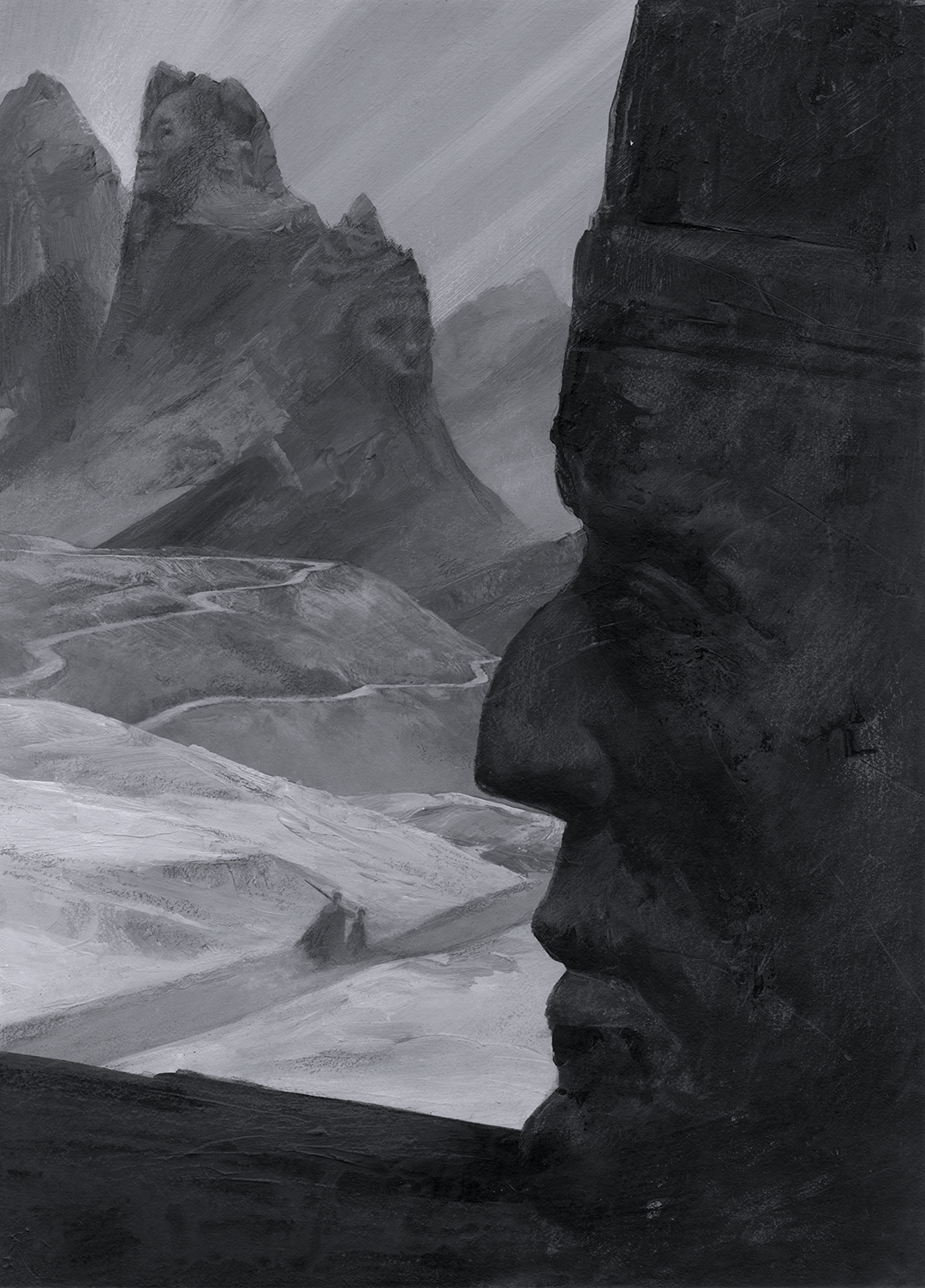
The Wars of Hate nevertheless had historical records from which the Humans of the world understood the past. They understood the Wars to be much like their historical religious texts: to be taken as having actually happened. The events of the Wars of Hate are contradictory with each other, but until a later point of academic sophistication, these contradictory points were explained away. Eventually, they are mythologized and disbelieved. Anyways, by that point, there are so few records left that knowledge of the Wars of Hate is scant.
The Wars of Hate, also called the Double Triumverate Wars, was a global war originating in the outskirts of the lands of the Naharaim and the Kingdom of the Double Triumverate. It led to the mobilization of many millions, making it the largest and deadliest conflict in history. The Wars of Hate were traditionally categorized into seven parts, but there were only three real phases of the war: the localized war, the global war, and the heavenly war.
The Wars of Hate had a high body count. Estimates are practices of fiction but range around 200-900 million combatant deaths and 400-1200 million civilian deaths. Resulting genocides and disease, among them biological weapons, caused a further 1-1.5 billion deaths. The total annihilation of the Itie'lman ethnic group, the Pirisqwik, in their failed apotheosis is not usually counted among normal estimations, but constitutes about 800 million dead. The gods destroyed half of the eastern continent of Tizüb and the eastern portions of Erub. Many billions died from the continental destruction, and many died from the ensuing earthquakes and tsunamis. The thrashing of the World-serpent Ishim caused the Great Flood. There are no reliable estimates as to the deaths caused by the Great Flood, but the already ravaged coasts of the world were submerged with their cities. Perhaps half the world's remaining population were drowned.
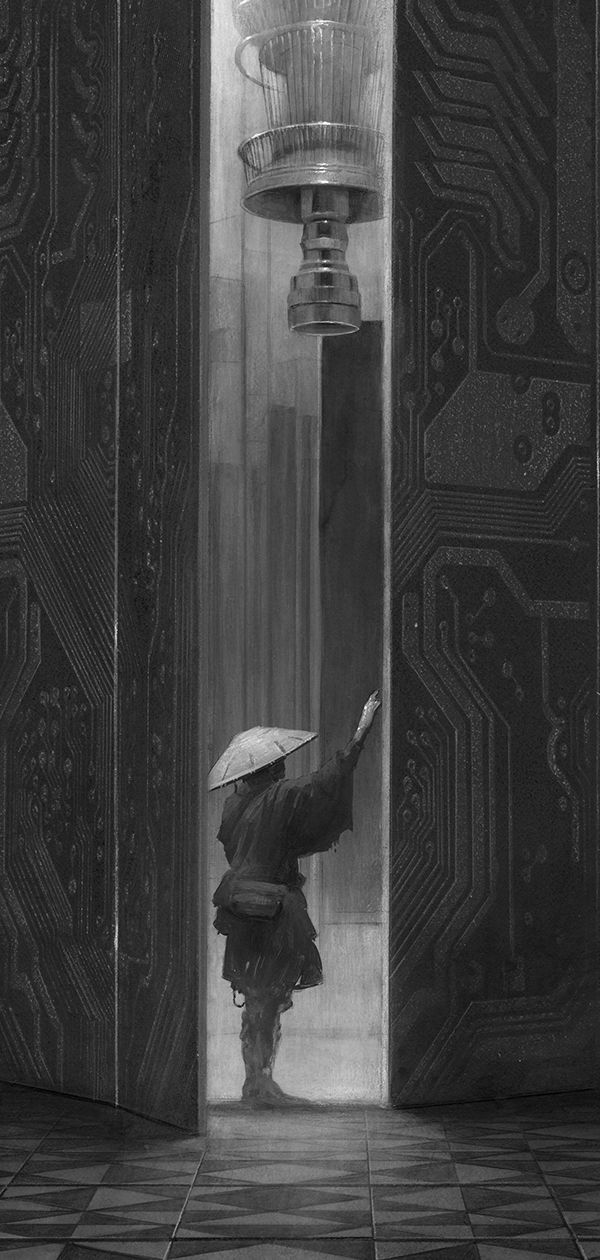
In the traditional classification, the first five Wars of Hate were the battles between the Double Triumverate and the Akkayata Commonwealth. The first three were small battles along the Dakathad Hills, near where the Gishan Fort is today in Atoraya-Kaldea. These battles are vague as to their specific tactics, and no scholar in this world's history will ever come to a clear conclusion. There were at once cavalry charges, machine-gun fire, pikes charging en-masse, rumbling chariots, and deep strikes into enemy territory with machine men sent down from the stratosphere. During the Fifth War of Hate the Double Triumverate suffered a catastrophic loss at the Battle of Takk and were pushed outside of Uulsan Torall.
The Empires of the West (the Empires of Okaeos, Muyyaqar, and Valxchi along with their colonies and vassals) demanded that Akkayata not cross to the western continents. When Akkayata did so, they declared war and joined the Double Triumverate in an alliance. Even so, Akkayata was able to conquer most of the Northern Mountains before being forced into a stalemate at the Fjalktir Highlands. The Akkayata were themselves supported by many nations and empires in their continent, at the time called Ethio (which was later sundered into the two continents of Tizüb and Moinen), who were whipped into further action by the many demons and Devil Princes who ruled them. The local conflict quickly expanded into a global total war.
The Sixth War of Hate began with the breaking of the stalemate at the Fjalktir. With Prince Abayin as captain, the Yeqitari Elves came in a tide unending and overwhelmed all the nations of the West. The Pirisqwik attempted a mass apotheosis by which they could repel Abayin but failed. With the destruction of all the major nations of the Western continents, the Sixth War of Hate was ended.
The Seventh War of Hate is the most controversial of the Wars. The Seventh War of Hate's beginning is defined by the appearance of the gods in combat. Either it began while the Sixth was engaged, or it began after its end. It was written in the Giingen Kine, a Caládolhn historical text, that there were gods fighting gods in the time span usually allocated to the Sixth War. But later common convention, especially by the time of the Empire of Juraedon, held that the good gods descended in a cataclysm to defeat the evil demons that ruled the East, and that this moment marked the beginning of the Seventh War of Hate. Either way, the continents were destroyed in heavenly combat, the Yeqitari and their nations were destroyed, and the chief demon (in the Qallanist religion called Gendûet) was imprisoned. A Great Flood whelmed the earth and the Elves began their dissolution.
Turning to go,
his helmet flashing, tall Hector answered,
"Don't ask me to sit beside you here, Helen.
Love me as you do, you can't persuade me now.
[...]
For I must go home to see my people first,
to visit my own dear wife and my baby son.
Who knows if I will ever come back to them again?
or the deathless gods will strike me down at last
at the hands of Argive fighters."
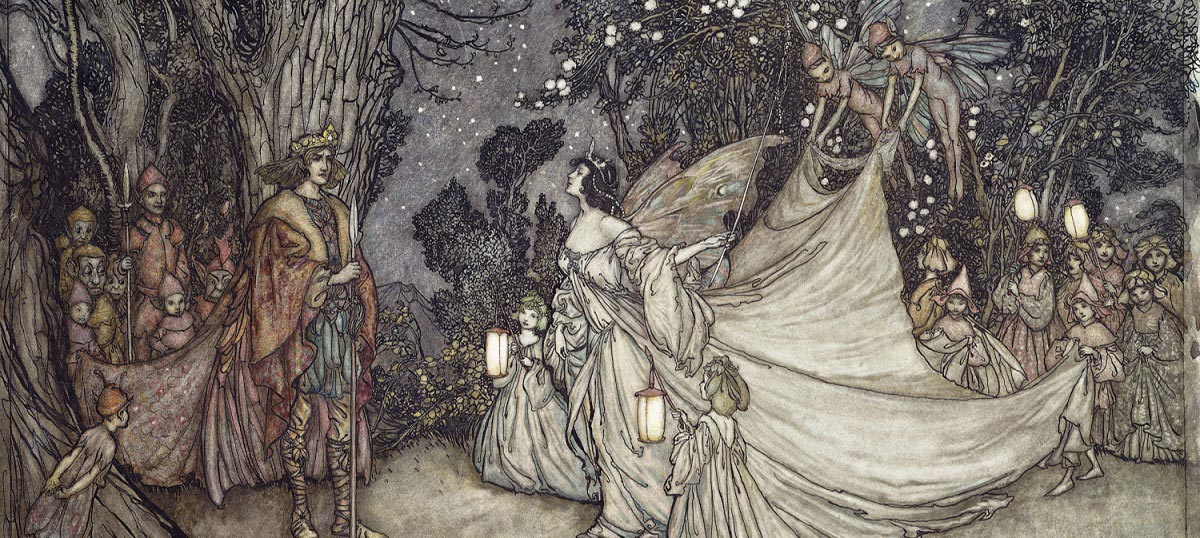
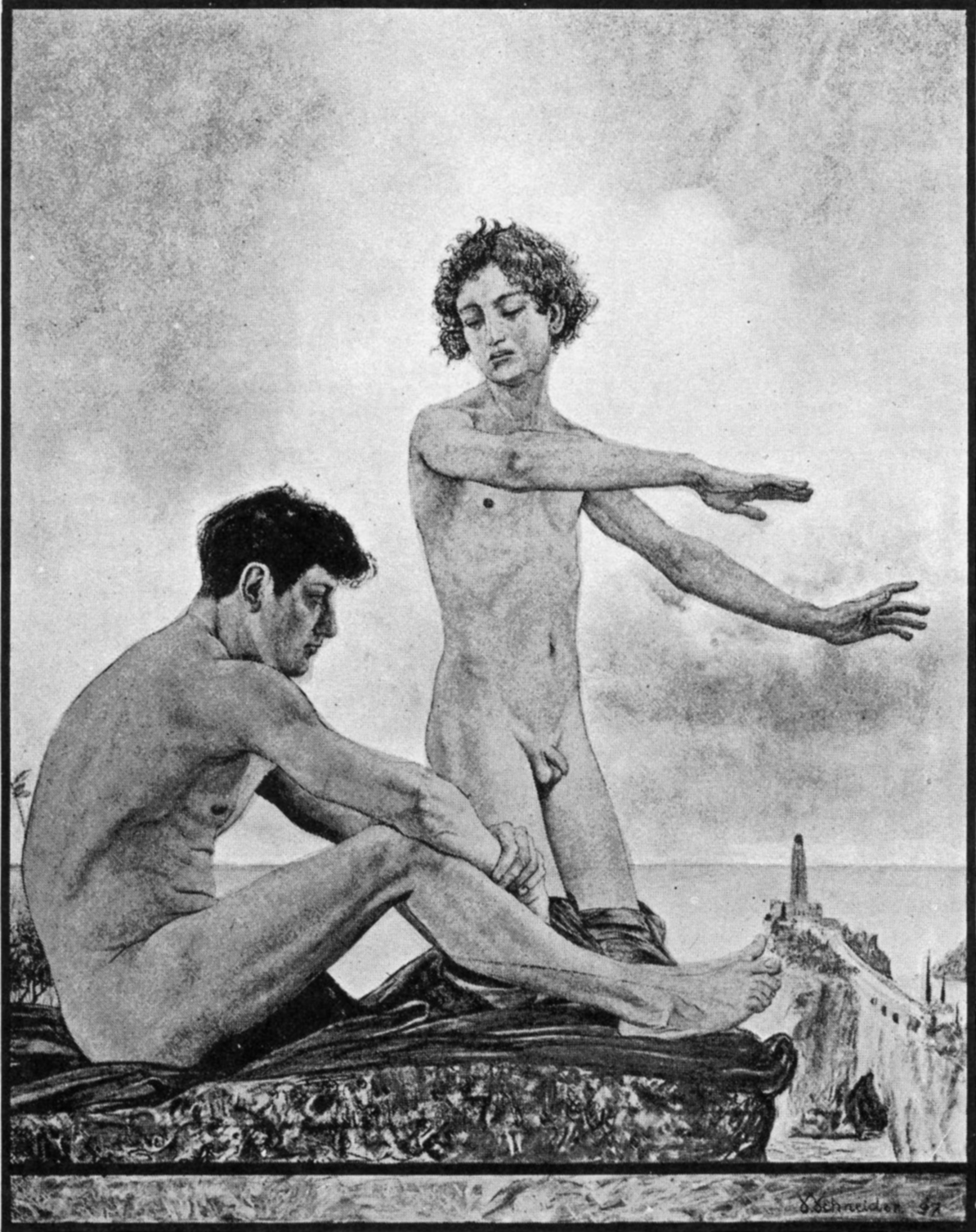
Comments